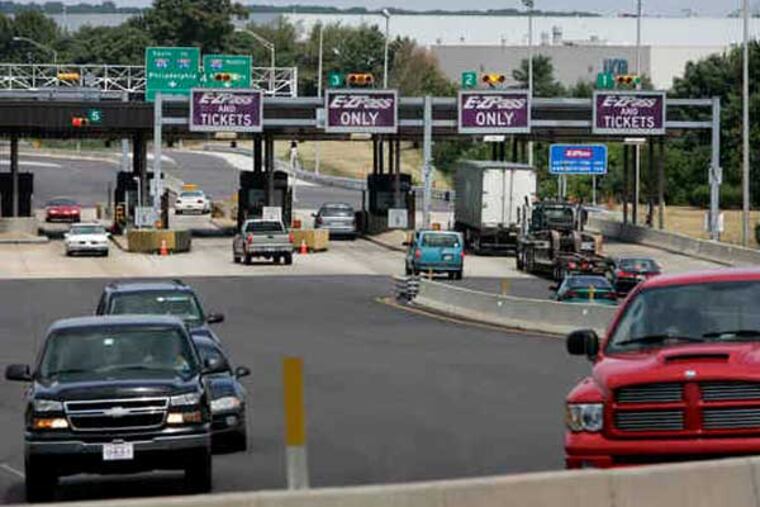Inquirer Editorial: Turnpike's global E-ZPass
Pennsylvania Turnpike users who have long since switched to E-ZPass may be surprised to learn that the toll road still prefers paper for some transactions. Rather than toll tickets, the Turnpike Commission is seeking federal approval to hand out green cards to foreign investors willing to lend it millions of dollars. Permission to live in the United States would be offered as part of a complex deal to finance a long-delayed interchange between the turnpike and I-95 in Bucks County.

Pennsylvania Turnpike users who have long since switched to E-ZPass may be surprised to learn that the toll road still prefers paper for some transactions. Rather than toll tickets, the Turnpike Commission is seeking federal approval to hand out green cards to foreign investors willing to lend it millions of dollars. Permission to live in the United States would be offered as part of a complex deal to finance a long-delayed interchange between the turnpike and I-95 in Bucks County.
In addition to securing low-cost capital funds for the project, the arrangement could spin off as much as $20 million in commissions for officers of a well-known and well-connected Philadelphia investment management firm.
Turnpike officials defend the proposal as a way to keep down borrowing costs. The commission's debt has ballooned to $7 billion in recent years as state transportation officials have turned to the agency to support road and transit projects across the commonwealth.
But in revealing the deal last week in response to an inquiry by The Inquirer, the commission has set off more flashing lights than a fare runner speeding past a tollbooth. State Auditor General Eugene DePasquale says the plan to raise $200 million "raises alarms" for him. He said he will be monitoring the deal and may launch a formal investigation if it goes ahead.
To approve the turnpike's plan, federal officials would have to accept the dubious premise that the Immigrant Investor Program created by Congress in 1990 should be applied to a highway project - even though the law envisions investments in "new commercial enterprises." The proposal also raises the question of why the turnpike would resort to such a byzantine approach to raising funds for maintaining and upgrading a critical piece of the state's highway network.
One obvious drawback of the green-cards-for-cash plan is that it offers far less transparency than traditional bond financing. Turnpike officials are already insisting that key elements of the deal must remain opaque because they amount to "trade secret and confidential proprietary information." That's hardly going to bolster public confidence in an agency that just came under a sweeping investigation for allegedly trading contracts for political contributions.
With the prospect of a lucrative payday for financial advisers, there are echoes, too, of the high hopes held out for an earlier plan to privatize the turnpike. The deal seemed unlikely to serve the public interest over the long-term given the risk that a private operator might slack off on maintenance.
If nothing else, the Turnpike Commission could be stumbling into a public relations blunder by opening an express lane for fat-cat foreigners seeking legal entry into the country at a time when Congress is wrestling with how to handle the estimated 11 million people who are already here illegally.
State officials would do better to get to work on a transportation funding plan that relieves the Turnpike Commission of the pressure to fund projects statewide. Then turnpike officials could look to the bond markets for their financing instead of trying to relocate Ellis Island to the Delaware.